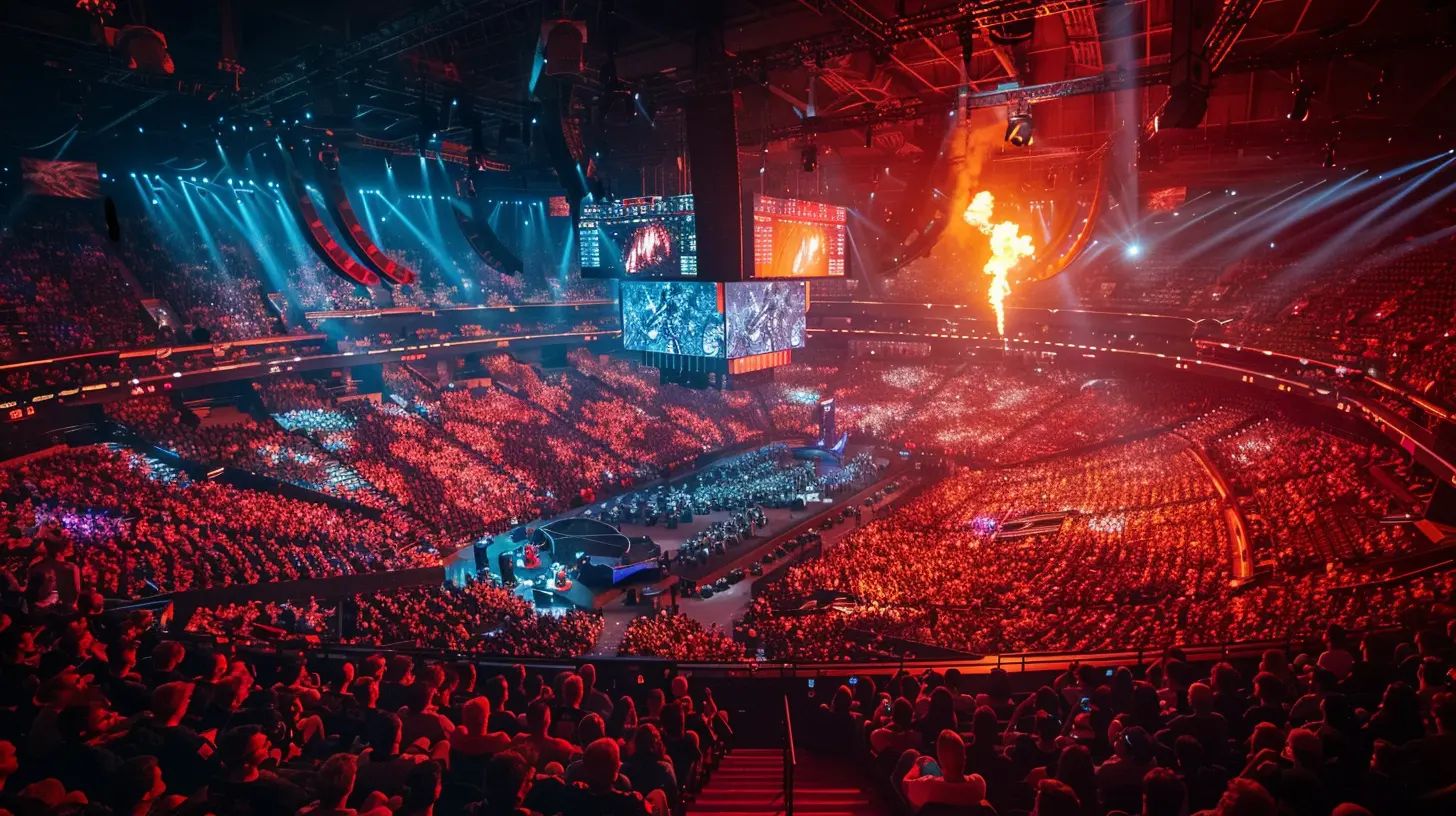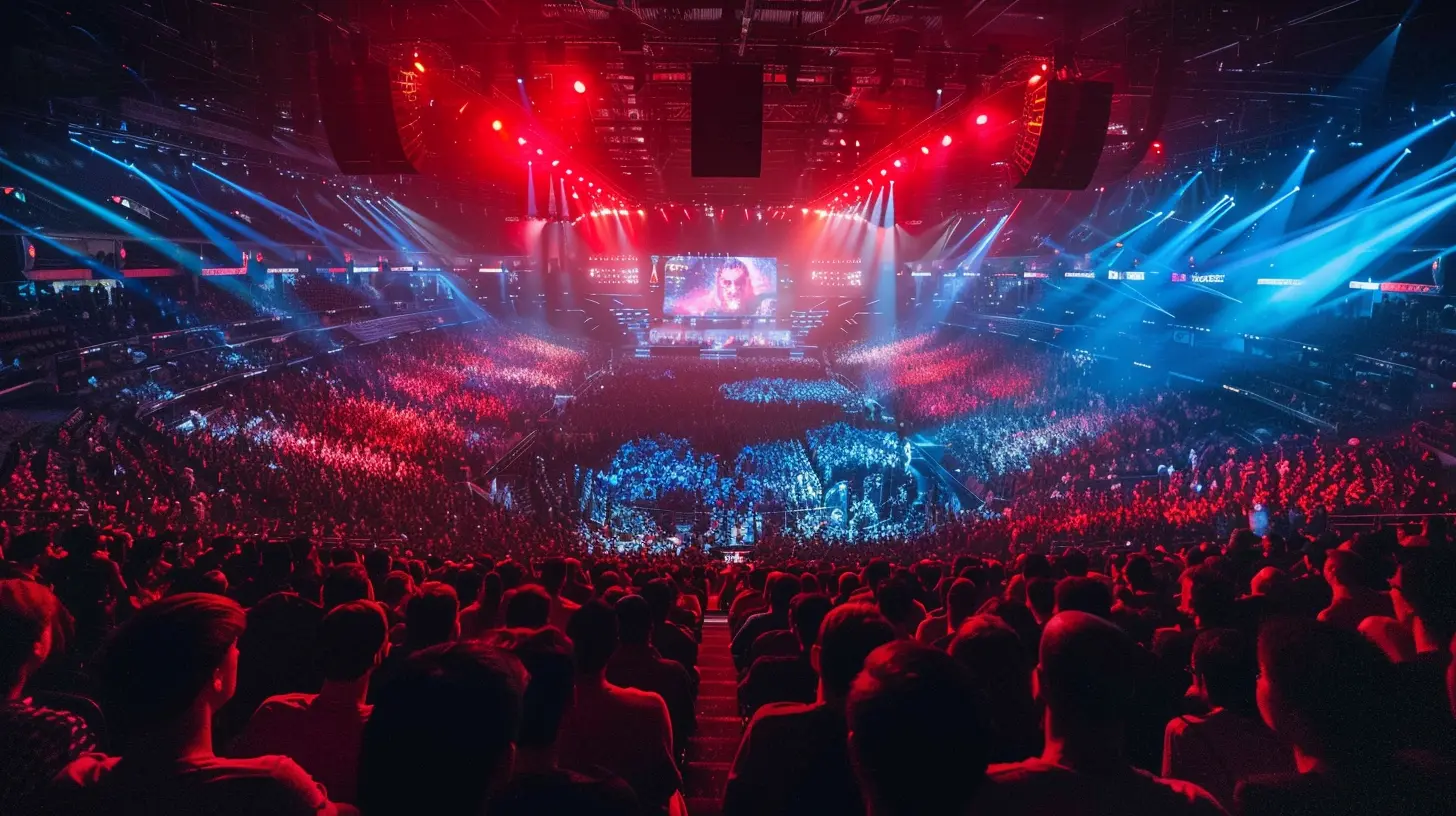The Role of Analytics and Data in Competitive Esports
18 April 2025
If you've ever hopped on Twitch to watch your favorite esports team dominate or maybe even tried your hand at climbing ranked ladders yourself, you’ve probably noticed one thing: esports isn't just about raw skill anymore. Sure, those flick headshots and clutch plays are still jaw-dropping, but there’s a whole other side to competitive esports that often goes unnoticed by the average viewer—the role of analytics and data.
In today’s competitive gaming world, data is the secret sauce. It’s what transforms good teams into great ones and great teams into legends. But how exactly does data come into play? And why is it so important in an arena where instinct and skill were traditionally the name of the game? Well, buckle up, because we’re about to dive deep into how analytics is reshaping esports as we know it.
How Data Turned Gaming Into Science
Remember when competitive gaming was just about sitting in your bedroom yelling at your teammates about bad calls? Well, those days are long gone. Esports has grown into a multi-billion-dollar industry, and like any other professional sport, it’s become a science. A big chunk of that science revolves around data.Why? Because data doesn’t lie.
From tracking win rates across maps in games like Counter-Strike: Global Offensive (CS:GO) to analyzing heatmaps of player movements in League of Legends, data provides teams with cold, hard evidence about what works and what doesn’t. Think about it like this: while traditional athletes track their fitness stats, sleep schedules, and game footage, esports athletes dive into game statistics to perfect their gameplay.
But here's the kicker—it's not just about numbers for the sake of numbers. The goal is to make smarter decisions, both in and out of the game. In a space where milliseconds can make the difference between victory and defeat, every piece of insight matters.
Analytics at Play: Breaking Down Competitive Games
So, how exactly does data shape the outcome of esports matches? Let’s break it down.1. Pre-Match Prep: Strategy Creation
Esports coaches and analysts pour hours into prepping their teams before matches. How do they do it? Through data, of course.Say a Valorant team is heading into a match against a top competitor. Using analytics tools, they can study the opponent’s tendencies. Does the other team prefer attacking A-site on the first round? What’s their playstyle when they’re on the defensive—aggressive or passive?
By understanding these patterns, teams can craft counter-strategies. It’s like knowing your opponent’s playbook before the big game. The difference is, in esports, this information is accessible in precise detail through VOD reviews and tracking tools.
2. Real-Time Decision Making: Data in the Heat of Competition
You’d think the analysis stops once the match begins, right? Nope.Many top teams employ analysts and tools that track real-time information during games. For instance, in Dota 2, teams can analyze which areas of the map are being controlled, what resources their opponents are farming, and predict power spikes based on item builds.
It’s like having a cheat sheet—but it’s all legit because everyone has access to the same tools. The challenge lies in making the right calls based on this data, often under intense pressure.
3. Post-Match Review: Learning from Data
Once the dust settles, teams dive back into the numbers. They break down what worked, what flopped, and where they can improve.For example, in Overwatch, analysts might review how successful certain ultimate combinations were. Did that Graviton Surge and Dragonblade combo really hit its mark, or did the team waste resources?
Post-match analytics provide teams with a feedback loop. It’s like reviewing game tape in the NFL, but instead of watching who ran the wrong route, analysts are determining why a player rotated to the wrong lane or failed a crucial skill shot. These insights drive improvement and help teams adapt for future matches.
The Tools Powering Esports Analytics
Alright, so we’ve talked a lot about “data.” But what tools are teams actually using to gather all this juicy intel?Stat-Tracking Platforms
Tools like GosuGamers, HLTV, and OP.GG provide tons of raw numbers—stats like kill/death ratios, win percentages, and headshot accuracies. These are goldmines for analysts building insights.Heatmaps and Tracking Software
Platforms like Mobalytics or even custom-built software for pro teams track player movements through heatmaps. This can show where players spend the most time on a map, revealing tendencies and areas to exploit.AI and Machine Learning
Yes, even esports is hopping on the AI train. Some teams use machine learning algorithms to crunch massive amounts of in-game data and detect patterns human analysts might miss. It’s like having a brainy assistant who never sleeps.
Why Analytics Gives You an Edge
Still not convinced about the power of data? Let me put it this way: if you’re not using analytics, you’re basically flying blind.Imagine two chess players. One uses past game data to study openings, tactics, and endgames. The other just wings it. Who do you think is more likely to win?
The same principle applies to esports. With margins of victory smaller than ever, every little advantage counts. Analytics helps teams make decisions grounded in fact, not gut feeling. It’s the difference between blindly pushing a lane in League of Legends and knowing exactly when to rotate for a game-changing Baron Nashor play.
Players Are Getting Smarter Too
It’s not just teams and coaches using data—players themselves are embracing analytics to take their gameplay to the next level.Take aim trainers like Kovaak's or Aim Lab, for instance. These tools give players detailed feedback about their performance—reaction times, accuracy percentages, movement tracking, you name it. It’s like having a personal fitness tracker for improving mechanical skill.
And then there are platforms like Blitz or Mobalytics, which act like personal coaches for players grinding ranked. They offer tailored recommendations based on playstyle and in-game mistakes, helping casual players climb the ladder while also sharpening the skills of future pros.
The Growing Importance of Data in Esports Economics
It’s not just about winning games anymore. Analytics and data are also shaping the business side of esports.Sponsors, advertisers, and tournament organizers rely on data to track audience engagement, viewership numbers, and fan demographics. This information helps them figure out where to invest their money and how to make esports events even bigger and better.
For example, by analyzing player metrics and audience engagement on platforms like YouTube or Twitch, sponsors can pick which players or teams align best with their brand. It’s a win-win for everyone involved.
The Future of Esports Analytics
So, what’s next? Well, we’re just scratching the surface.As esports continues to grow, so will the sophistication of analytics tools. AI will continue advancing, with predictive models becoming even more accurate. Virtual reality and augmented reality might even introduce new ways to visualize and interact with data.
And who knows? Maybe in a few years, we’ll even see esports analytics integrated into casual gaming experiences, so everyone can get a taste of what the pros are using.
The bottom line? The role of analytics and data in esports is only going to get bigger. Whether you’re a hardcore competitor or just someone who loves catching the latest Valorant tourney, analytics is changing the game—and for the better.
Why It All Matters
At the end of the day, esports is still about the thrill of competition, the joy of improvement, and the camaraderie of working as a team. Analytics doesn’t replace any of that—it enhances it. Data is just another tool in the arsenal, helping players and teams reach their full potential.So the next time you’re watching your favorite team pull off a flawless strategy or a player hit an impossible shot, remember: there’s probably a mountain of data behind it. And that’s kind of awesome, isn’t it?
all images in this post were generated using AI tools
Category:
Competitive GamingAuthor:

Luke Baker
Discussion
rate this article
4 comments
Darius Carter
Great article! It's fascinating to see how analytics and data are transforming competitive esports. Understanding player performance and strategies through data insights not only enhances gameplay but also elevates the overall viewing experience. Excited to see how this evolves in the future!
April 27, 2025 at 3:56 AM

Luke Baker
Thank you! I'm glad you enjoyed the article. It's an exciting time for esports, and data analytics will definitely play a key role in its evolution!
Isla Hunter
Analytics revolutionize esports by enhancing team strategies, player performance, and audience engagement, shaping the future of competitive gaming.
April 20, 2025 at 2:30 PM

Luke Baker
Thank you for your insight! Indeed, analytics are becoming crucial in optimizing strategies and boosting performance in esports.
Yazmin McPhee
Numbers redefine player potential.
April 19, 2025 at 3:17 PM

Luke Baker
Absolutely! Numbers provide objective insights that can uncover strengths, weaknesses, and opportunities for player development, ultimately enhancing competitive performance.
Bria Nguyen
“Analytics in esports is like a secret weapon! Embrace the stats and level up your gameplay!”
April 19, 2025 at 4:32 AM

Luke Baker
Absolutely! Leveraging analytics can provide invaluable insights that enhance performance and strategy in esports. Embrace the data to gain a competitive edge!



